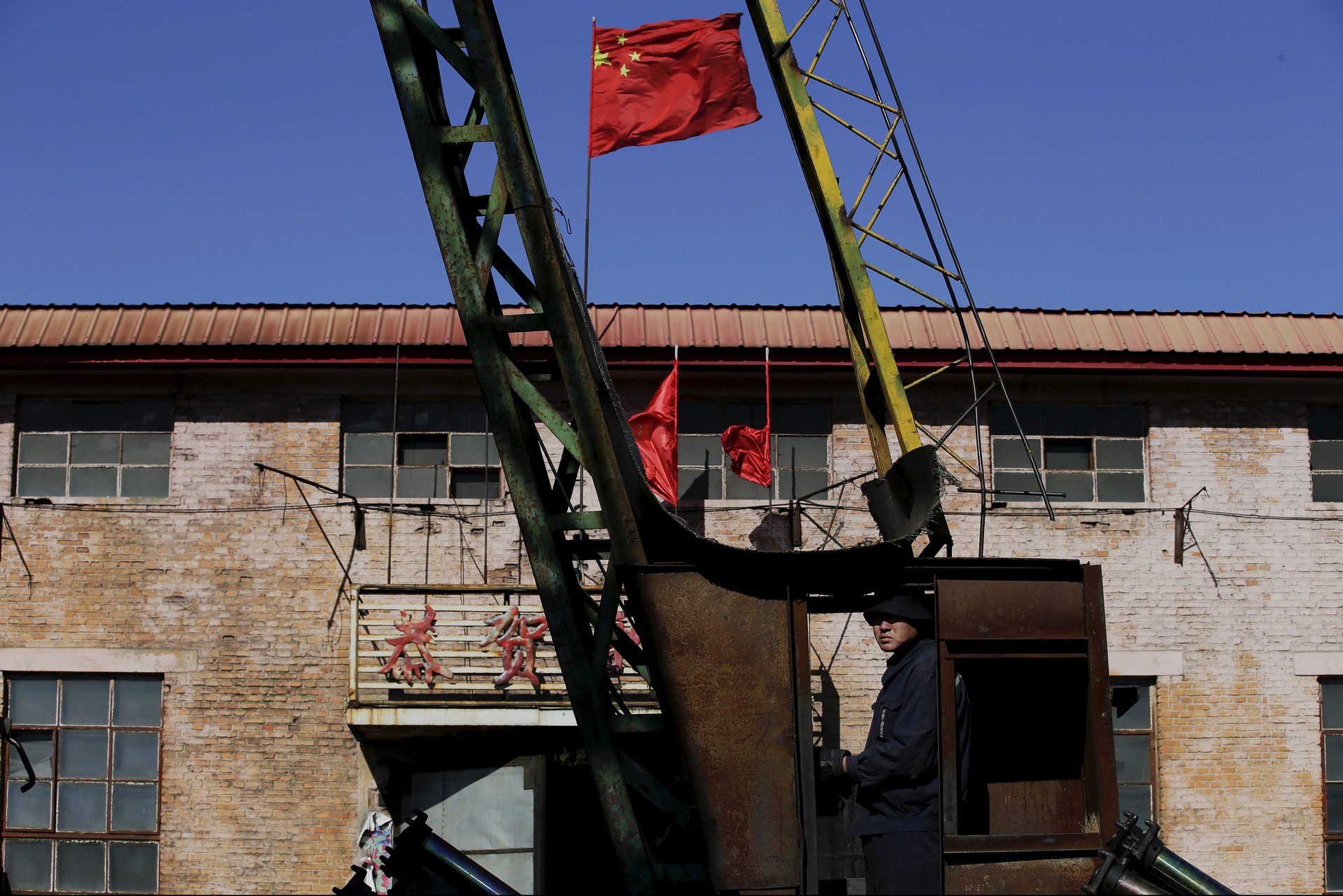The demise of Dongbei Special Steel shows how China’s rating agencies fail investors
China’s Liaoning province was once called “the eldest son of the republic” for its contribution to heavy industry. Now one of its most important steelmakers is a dark symbol of the nation’s economic woes and rising tension between investors, companies, and dubious rating agencies.


China’s Liaoning province was once called “the eldest son of the republic” for its contribution to heavy industry. Now one of its most important steelmakers is a dark symbol of the nation’s economic woes and rising tension between investors, companies, and dubious rating agencies.
Dongbei Special Steel Group has defaulted on 4.7 billion yuan ($718 million) (link in Chinese) of bonds since March 28, according to Xinhua. The state-owned enterprise’s biggest shareholder (link in Chinese) is the local government’s Liaoning State-Owned Assets Administration, which owns 46% of the company, according to China Lianhe Credit Rating.
Despite months of serious warning signs, until the day of its first default, Dongbei was still rated “AA,” or a safe company for investment, by China’s major rating agencies. That’s even though Dongbei stopped releasing financial statements last September (link in Chinese), and Dongbei’s chairman was found dead, the result of an apparent suicide, days before the first default in March.
Many of Dongbei’s investors are now pushing for it to file for bankruptcy, criticizing Liaoning’s asset fund for not providing more support, and have threatened to reject a restructuring proposal by bond underwriter China Development Bank (link in Chinese), according to financial news outlet Yicai’s report on July 26.
It is a big change from when Dongbei was formed in 2003 from three companies, under the instructions of then provincial governor Bo Xilai, who is now serving a life sentence for bribery, embezzlement, and abuse of power. It was once capable of producing 5.6 million tons (link in Chinese, pdf, p. 12) of steel a year, and its publicly traded subsidiary Fushun Special Steel Shares reported a profit of 220 million yuan (link in Chinese, pdf, p. 1) in 2015.
The Dongbei situation is being replicated throughout China, as state-owned bond defaults are spiking.
So far this year, some 21.8 billion yuan ($3.28 billion) in bonds from Chinese state-owned enterprises have defaulted, according to a June 21 report from ratings agency Standard & Poor’s. All of the below state-owned enterprises (SOEs) were rated at least AA- or higher by China’s four major rating agencies before they defaulted, S&P’s managing director of corporate ratings Christopher Lee told Quartz. Most of them were not downgraded to “junk” until the day the default was announced.
“Nearly all the bond default issuers have at least AA- credit,” Chen Changhua (link in Chinese), head of the China research department at Credit Suisse, told financial media Caixin on Aug. 1. “What’s even weirder is nearly 96% of China’s bond issuers have AA- or even higher grades, while our sample from international ratings agencies was only 2.2%.”
That’s because Chinese credit rating agencies built government backing into their ratings, while foreign rating agencies do not. “Many China credit rating agencies considered political connection as a key factor in giving a grade,” said Wong Chak Sham, an associate professor of finance at City University of Hong Kong. China’s SOEs received high credit ratings “because analysts believe that they will be financially supported regardless of their operating results.”
That hasn’t happened. Instead, the government appears to be signaling that it is stopping additional bailouts to unprofitable or failing state companies in order to save resources for profitable ones, Wong said. He predicts just one or two state companies in overcapacity industries will be forced to default. “As long as it happens, other large SOEs in the same industry will be safe. Probably they would acquire the assets and hire some of the workers of the collapsed company,” he said.
If that happens with Dongbei Special Steel Company, it might need to lay off nearly 20,000 employees.
The Dongbei situation and other SOE defaults may prompt China’s credit rating agencies to start evaluating bonds more strictly. But for investors holding nearly 5 billion yuan in the Dongbei’s debt, that isn’t likely to be much consolation.